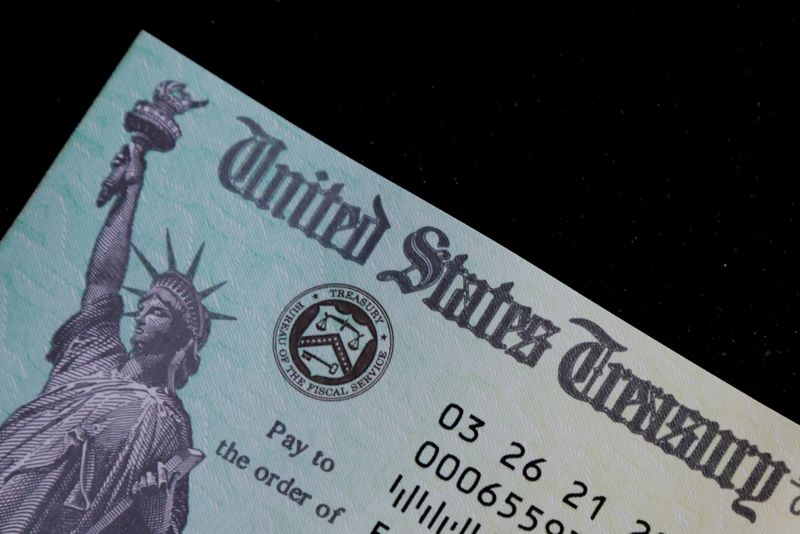By Karen Pierog
CHICAGO (Reuters) - U.S. states and local governments are raring to tap billions of dollars coming their way in new federal stimulus funding, but are anxiously awaiting guidance to determine whether items on their wish lists are allowed.
U.S. Treasury Department guidance is also expected to clarify states' ability to cut taxes and may address using stimulus money to pay off debt.
The $1.9 trillion American Rescue Plan Act, signed by President Joe Biden in March, allocates $350 billion for states, municipalities, counties, tribes, and territories to help repair their coronavirus-damaged budgets and economies. The federal government has a tight deadline to start distributing the money.
"The clock is certainly ticking. They have to get the money out the door by May 10," said Mark Ritacco, government affairs director at the National Association of Counties.
Unlike the $150 billion governments received under last year's federal CARES Act, which was limited to pandemic-related spending, the new money can be used to replace revenue lost due to the pandemic, provide "premium pay" for essential workers, and to invest in water, sewer, and broadband infrastructure, according to the U.S. Treasury.
Governments have "tons and tons of questions" about eligible uses for the money including financing other capital improvements that were deferred due to the pandemic and parking stimulus funds in interest bearing accounts, according to Emily Swenson Brock, director of the Government Finance Officers Association’s Federal Liaison Center.
"There's just this wide berth of interpretation in the (legislative text) and that's why we're a little anxious to see if the Treasury guidance makes limitations or if it allows for greater opportunity," she said.
Brock added that several state legislatures are talking about using stimulus money to pay off outstanding debt, a move not addressed in the act.
New Jersey has identified bonds that could be retired in the next few years if the state "is afforded greater flexibility," according to Jennifer Sciortino, spokeswoman for the state treasurer's office.
"At this point, it is entirely unknown if the federal government will permit us to use funds to pay off existing debts," she said.
Illinois Governor J.B. Pritzker wants to use stimulus dollars to take out the remainder of the $3.2 billion his state borrowed last year through the U.S. Federal Reserve's Municipal Liquidity Facility to ease a cash crunch.
The act does not allow the money to be used for pensions or to subsidize new state tax cuts.
The latter prohibition sparked five lawsuits against the Biden administration by Republican attorneys general in several states. Ohio filed the first case on March 17, contending "Congress lacks constitutional authority to limit states' taxing power in this manner."
With the case still pending, the Ohio House of Representatives on Wednesday approved a 2% income tax cut totaling about $380 million over two years.
Bills have been introduced in 16 other states as of April 6 to cut personal or corporate income taxes, according to the National Conference of State Legislatures.

U.S. Treasury Secretary Janet Yellen has said nothing in the act prevents tax cuts and that further guidance would be forthcoming.